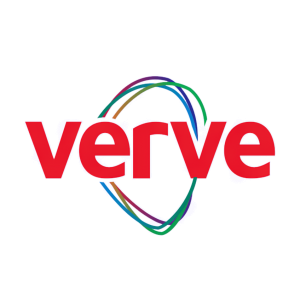Verve Therapeutics Announces Dosing of First Patient in Heart-2 Phase 1b Clinical Trial Evaluating VERVE-102
Rhea-AI Summary
Verve Therapeutics announced the dosing of the first patient in the Heart-2 Phase 1b clinical trial evaluating VERVE-102, an investigational in vivo base editing medicine designed to reduce blood low-density lipoprotein cholesterol. The trial is enrolling patients with heterozygous familial hypercholesterolemia or premature coronary artery disease. VERVE-102 aims to permanently inactivate the PCSK9 gene in the liver, providing sustained reductions in LDL-C levels after a single treatment.
Positive
VERVE-102 is a novel gene editing medicine designed for a single course treatment to turn off the PCSK9 gene in the liver, reducing disease-driving LDL-C levels.
The Heart-2 Phase 1b clinical trial is enrolling patients with HeFH or premature CAD, two populations requiring deep reductions in LDL-C levels for an extended period.
The dosing of the first patient in the Heart-2 trial marks a significant milestone in Verve Therapeutics' pipeline progress towards transforming ASCVD care.
Negative
The preliminary efficacy and safety data of VERVE-102 in the Heart-2 trial will only be available in 2025, leading to a waiting period for investors and stakeholders.
No specific results or outcomes from the trial have been disclosed, leaving uncertainty about the potential success of the VERVE-102 treatment in reducing LDL-C levels.
News Market Reaction – VERV
On the day this news was published, VERV declined 3.90%, reflecting a moderate negative market reaction.
Data tracked by StockTitan Argus on the day of publication.
VERVE-102 is an investigational in vivo base editing medicine designed to permanently inactivate the PCSK9 gene in the liver to durably reduce blood low-density lipoprotein cholesterol
Heart-2 enrolling patients with heterozygous familial hypercholesterolemia or premature coronary artery disease
BOSTON, May 07, 2024 (GLOBE NEWSWIRE) -- Verve Therapeutics, a clinical-stage biotechnology company pioneering a new approach to the care of cardiovascular disease with single-course gene editing medicines, today announced that the first patient has been dosed with VERVE-102 in the Heart-2 Phase 1b clinical trial. The Heart-2 trial is enrolling adult patients with heterozygous familial hypercholesterolemia (HeFH) or premature coronary artery disease (CAD), two patient populations who require deep reductions of low-density lipoprotein cholesterol (LDL-C) levels in the blood for an extended period of time. Patients living with HeFH have an inherited disorder characterized by elevated blood levels of LDL-C starting early in life. Patients living with premature CAD experience cholesterol-driven blockage of coronary arteries early in life and are at high risk of further complications. A lack of durable control of LDL-C levels in both HeFH and premature CAD patients carries high lifetime risks for cardiovascular events, including heart attack and sudden death.
“Dosing the first patient in the Heart-2 Phase 1b clinical trial for VERVE-102 is an important step in the continued progress of our pipeline,” said Sekar Kathiresan, M.D., co-founder and chief executive officer of Verve Therapeutics. “We are focused on transforming the care of atherosclerotic cardiovascular disease (ASCVD) through gene editing medicines that can lead to sustained reductions in blood cholesterol after a single course of treatment. VERVE-102 is designed to turn off the PCSK9 gene with a goal of durably lowering LDL-C in patients living with either HeFH or premature CAD, and we look forward to evaluating the safety and preliminary efficacy data of VERVE-102 in the Heart-2 trial. With Clinical Trial Applications cleared in Canada and the United Kingdom, we are actively enrolling patients in the Heart-2 trial and expect to provide a data update on our PCSK9 program in 2025.”
VERVE-102 is a novel, investigational gene editing medicine designed to be a single course treatment that permanently turns off the PCSK9 gene in the liver to reduce disease-driving LDL-C. VERVE-102 consists of messenger RNA expressing an adenine base editor and an optimized guide RNA targeting the PCSK9 gene. In addition, VERVE-102 uses a proprietary GalNAc-LNP delivery technology which allows lipid nanoparticles to access and deliver the gene editing medicine to liver cells using either the asialoglycoprotein receptor (ASGPR) or the low-density lipoprotein receptor (LDLR).
Heart-2 is an open-label Phase 1b clinical trial designed to evaluate the safety and tolerability of VERVE-102 administration in adult patients with HeFH or premature CAD who require additional lowering of LDL-C. Endpoints also include pharmacokinetics and changes in blood PCSK9 protein and LDL-C levels. The trial is a single-ascending dose study that has an adaptive design. Heart-2 is expected to include four dose cohorts each comprised of three to nine patients with either HeFH or premature CAD. HeFH is diagnosed based on high LDL-C levels, a personal or family history of ASCVD, physical exam features, and/or mutations identified in certain genes. Premature CAD is defined as evidence of ASCVD occurring in men aged 50 years old or women 60 years old. Clinical Trial Applications for the Heart-2 trial have been cleared in Canada and the United Kingdom. For more information, please visit https://clinicaltrials.gov/.
About Verve Therapeutics
Verve Therapeutics, Inc. (Nasdaq: VERV) is a clinical-stage genetic medicines company pioneering a new approach to the care of cardiovascular disease, potentially transforming treatment from chronic management to single-course gene editing medicines. The company’s lead programs – VERVE-101, VERVE-102, and VERVE-201 – target genes that have been extensively validated as targets for lowering low-density lipoprotein cholesterol (LDL-C), a root cause of atherosclerotic cardiovascular disease (ASCVD). VERVE-101 and VERVE-102 are designed to permanently turn off the PCSK9 gene in the liver and are being developed initially for heterozygous familial hypercholesterolemia (HeFH) and ultimately to treat patients with established ASCVD who continue to be impacted by high LDL-C levels. VERVE-201 is designed to permanently turn off the ANGPTL3 gene in the liver and is initially being developed for homozygous familial hypercholesterolemia (HoFH) and for refractory hypercholesterolemia where patients still have high LDL-C despite treatment with maximally-tolerated standard of care therapies. For more information, please visit www.VerveTx.com.
Cautionary Note Regarding Forward Looking Statements
This press release contains “forward-looking statements” within the meaning of the Private Securities Litigation Reform Act of 1995 that involve substantial risks and uncertainties, including statements regarding expectations for the company’s Heart-2 trial, including the trial design and the company’s ability to enroll patients; the timing and availability of data for the PCSK9 program; and the potential advantages and therapeutic potential of VERVE-102. All statements, other than statements of historical facts, contained in this press release, including statements regarding the company’s strategy, future operations, future financial position, prospects, plans and objectives of management, are forward-looking statements. The words “anticipate,” “believe,” “continue,” “could,” “estimate,” “expect,” “intend,” “may,” “plan,” “potential,” “predict,” “project,” “should,” “target,” “will,” “would” and similar expressions are intended to identify forward-looking statements, although not all forward-looking statements contain these identifying words. Any forward-looking statements are based on management’s current expectations of future events and are subject to a number of risks and uncertainties that could cause actual results to differ materially and adversely from those set forth in, or implied by, such forward-looking statements. These risks and uncertainties include, but are not limited to, risks associated with the company’s limited operating history; the company’s ability to timely submit and receive approvals of regulatory applications for its product candidates; advance its product candidates in clinical trials; initiate, enroll and complete its ongoing and future clinical trials on the timeline expected or at all; correctly estimate the potential patient population and/or market for the company’s product candidates; replicate in clinical trials positive results found in preclinical studies and/or earlier-stage clinical trials of VERVE-101, VERVE-102, and VERVE-201; advance the development of its product candidates under the timelines it anticipates in current and future clinical trials; obtain, maintain or protect intellectual property rights related to its product candidates; manage expenses; and raise the substantial additional capital needed to achieve its business objectives. For a discussion of other risks and uncertainties, and other important factors, any of which could cause the company’s actual results to differ from those contained in the forward-looking statements, see the “Risk Factors” section, as well as discussions of potential risks, uncertainties and other important factors, in the company’s most recent filings with the Securities and Exchange Commission and in other filings that the company makes with the Securities and Exchange Commission in the future. In addition, the forward-looking statements included in this press release represent the company’s views as of the date hereof and should not be relied upon as representing the company’s views as of any date subsequent to the date hereof. The company anticipates that subsequent events and developments will cause the company’s views to change. However, while the company may elect to update these forward-looking statements at some point in the future, the company specifically disclaims any obligation to do so.
Investor Contact
Jen Robinson
Verve Therapeutics, Inc.
jrobinson@vervetx.com
Media Contact
Ashlea Kosikowski
1AB
ashlea@1abmedia.com

FAQ
What is VERVE-102?
VERVE-102 is an investigational in vivo base editing medicine designed to permanently inactivate the PCSK9 gene in the liver to durably reduce blood low-density lipoprotein cholesterol.
What is the goal of the Heart-2 Phase 1b clinical trial?
The goal of the Heart-2 trial is to evaluate the safety and tolerability of VERVE-102 administration in adult patients with HeFH or premature CAD who require additional lowering of LDL-C.
What are the key endpoints of the Heart-2 trial?
The key endpoints include pharmacokinetics, changes in blood PCSK9 protein, and LDL-C levels in patients receiving VERVE-102 treatment.
How is HeFH diagnosed?
HeFH is diagnosed based on high LDL-C levels, a personal or family history of ASCVD, physical exam features, and/or mutations identified in certain genes.
What is premature CAD?
Premature CAD is defined as evidence of ASCVD occurring in men aged 50 years old or women 60 years old.







